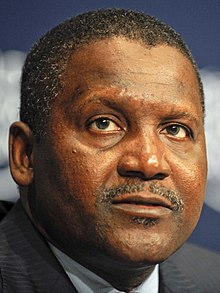



The social structure in Nigeria is the hierarchical characterization of social status, historically stratified under the Nigerian traditional rulers and their subordinate chiefs, with a focus on tribe and ethnicity which continued with the advent of colonization.[1]
Since independence, however, it has become increasingly characterized by the gradual shift towards wealth, income, education, type of occupation, and most recently specific subcultures amongst the youth.
- ^ "In pictures: Country of kings, Nigeria's many monarchs". BBC News. 2013-10-13. Retrieved 2021-07-01.